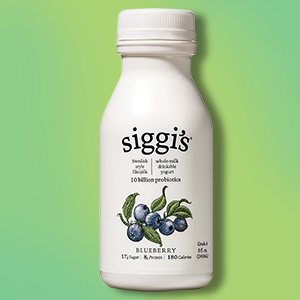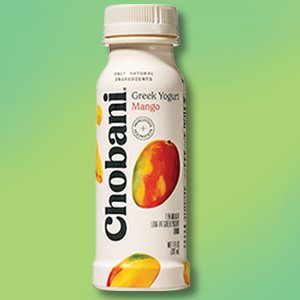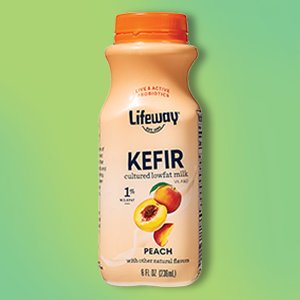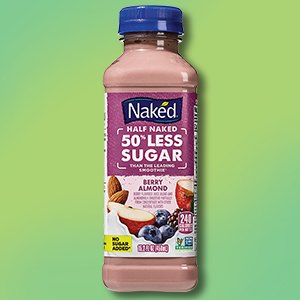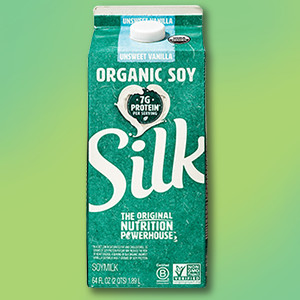If you’re looking to get more protein in your diet, you may have considered adding a protein powder or a protein drink, such as Ensure Max Protein, to your daily routine. It used to be that protein products were marketed only to athletes and bodybuilders, but now they’ve gone much more mainstream. Ads depict regular people who look healthy and vibrant, presumably thanks to the protein drinks they’re sipping.
It’s wise, of course, to make sure you’re getting enough protein each day. Adults need 0.4 gram of protein per pound of body weight per day. If you weigh 150 pounds, that’s 60 grams.
More on Healthy Eating
Arsenic, Lead Found in Popular Protein Supplements
A Healthier Way to Get More Protein
A Meat Lover's Guide to Healthy Eating
The Mounting Evidence Against Ultra-Processed Foods
Older adults need more—0.6 gram of protein per pound of body weight per day, or about 90 grams for someone who weighs 150 pounds. It’s needed to help the body heal and help prevent falls. “Protein is especially important in older men and women to maintain existing muscle mass and offset muscle losses [that come] with aging,” says Nancy Rodriguez, Ph.D., R.D., professor of nutritional sciences at the University of Connecticut.
But protein powders and drinks don’t necessarily deserve the “health food” status that so many people attribute to them. “They may seem attractive because of their convenience,” says Lauri Wright, Ph.D., R.D.N., chair of the department of nutrition and dietetics at the University of North Florida in Jacksonville, “but older adults typically can get enough through their normal diet.” There may be special cases where your doctor might recommend you use a protein powder or drink, such as after surgery or if you are ill and aren’t able to eat enough to meet your needs. But in most cases, there are a number of reasons why it makes sense to stick with food rather than these drinks.
Protein Overload
Protein powders have a high concentration of the nutrient—more, in some cases, than even high-protein foods such as chicken. Depending on the drink and the serving size, you may get more than your body can use effectively—around 25 to 30 grams per meal, according to research from the University of Texas Medical Branch. What’s more, if you have any kidney damage, too much protein over the course of the day can cause waste to build up in your blood. Almost 40 percent of people ages 65 and older have chronic kidney disease, and about 90 percent of them don’t even know they have it, according to the Centers for Disease Control and Prevention.
Ultra-Processed Ingredients
Soy protein, pea protein, whey protein, or other similar ingredients found in protein powders and ready-made smoothies aren’t simply the whole food dried and ground into a powder. Instead, companies extract the protein from the foods in a lab. “You’re left with the protein, but not the other components of the food,” says Charlotte Vallaeys, senior policy analyst for food and nutrition at Consumer Reports.
Many protein products also contain additives like artificial flavors and colorings, says Wright, and sometimes excess sodium and unexpected ingredients like inulin or carrageenan, which could cause digestive upset for some. “The proteins in these products are highly processed,” says Vallaeys. “There has been a lot of research linking a diet high in ultra-processed foods to heart disease, type 2 diabetes, and other ailments. You’re much better off getting protein from food—eggs, lean meat, poultry, beans, nuts, and dairy—which are naturally packed with vitamins and minerals, and, in some cases, antioxidants.”
A 2018 study from the nonprofit Clean Label Project of 134 popular protein powders found detectable levels of heavy metals such as arsenic, cadmium, mercury, and lead, and toxins like bisphenol A in nearly all of them. Exposure to these substances has been linked to cancer, brain damage, heart disease, and stroke.
Surprise Sweeteners
Protein powders and drinks can pack more added sugars than you’d expect, which can lead to weight gain and make it harder to manage blood sugar if you have diabetes. For example, vanilla Spiru-Tein Sport protein powder has 13 grams of sugars in two scoops. And a single-serving bottle of Bolthouse Farms Protein Plus Strawberry shake has 26 grams of added sugars—more than what’s in a cup of Breyers strawberry ice cream. Protein products may also contain non-nutritive sweeteners like stevia or sucralose, or sugar alcohols such as erythritol.
Shoddy Regulation
According to the Food and Drug Administration, a protein powder or liquid can be a supplement or a food depending on how the manufacturer markets it. The distinction is important because, as with all supplements, the FDA doesn’t verify that protein supplements contain what they claim to, while foods are subject to more regulation. If it’s clearly a beverage—for example, it’s called a drink or smoothie or the directions say “mix with milk,” it’s probably considered a food. If not, the manufacturer may choose to call it a supplement. “Label accuracy with supplements is entirely reliant on the company,” says Pieter Cohen, M.D., an associate professor at Harvard Medical School and supplement researcher. One way to tell what the manufacturer considers its product to be is to see whether the package has a “Nutrition Facts” panel or a “Supplement Facts” one.
Make Your Own Protein Drink
If you want a protein drink, opt for homemade—you control what you put into it. Try blending up this Chocolate-Strawberry Smoothie. The recipe makes 4 servings; you can make a batch and keep it in the fridge for up to three days. And check out our other smoothie recipes.
Blend 2 frozen bananas; 1 cup frozen strawberries; 12 oz. soft tofu, drained; 2 cups soy or cow’s milk; ¼ cup tahini; and 2 tablespoons cocoa powder on high until smooth. Add ice to thin as necessary.
Per serving: 250 calories, 13 g fat, 2 g saturated fat, 24 g carbs, 5 g fiber, 10 g total sugars, 0 g added sugars, 13 g protein, 75 mg sodium
Five Ready-Made Choices
Not in the mood to clean the blender? The refrigerated smoothies and protein drinks you find in the supermarket, such as those by Naked or Odwalla, usually have cleaner ingredients lists than the shelf-stable ones, but many still contain isolated proteins, lots of added sugars, and unwanted additives. So read labels carefully, or you can opt for a yogurt or kefir drink or even soy milk, which are natural sources of protein and supply other nutrients.
Siggi’s Blueberry Whole Milk Drinkable Yogurt
Serving Size: 8 ounces
- CALORIES: 180
- FAT: 8 g
- SAT. FAT: 5 g
- CARBS: 20 g
- FIBER: 0 g
- TOTAL SUGARS: 17 g
- ADDED SUGARS: 8 g
- PROTEIN: 8 g
- SODIUM: 105 mg
Chobani Mango Greek Yogurt Drink
Serving Size: 7 ounces
- CALORIES: 150
- FAT: 3.5 g
- SAT. FAT: 2.5 g
- CARBS: 19 g
- FIBER: 2 g
- TOTAL SUGARS: 15 g
- ADDED SUGARS: 6 g
- PROTEIN: 10 g
- SODIUM: 85 mg
Lifeway Lowfat Kefir Peach
Serving Size: 8 ounces
- CALORIES: 140
- FAT: 2 g
- SAT. FAT: 1.5 g
- CARBS: 20 g
- FIBER: 0 g
- TOTAL SUGARS: 20 g
- ADDED SUGARS: 8 g
- PROTEIN: 11 g
- SODIUM: 125 mg
Naked Juice Half Naked Berry Almond
Serving Size: 15.2 ounces
- CALORIES: 240
- FAT: 15 g
- SAT. FAT: 0 g
- CARBS: 14 g
- FIBER: 2 g
- TOTAL SUGARS: 25 g
- ADDED SUGARS: 0 g
- PROTEIN: 7 g
- SODIUM: 5 mg
Silk Organic Unsweet Vanilla Soymilk
Serving Size: 8 ounces
- CALORIES: 80
- FAT: 4 g
- SAT. FAT: 0.5 g
- CARBS: 4 g
- FIBER: 2 g
- TOTAL SUGARS: 1 g
- ADDED SUGARS: 0 g
- PROTEIN: 7 g
- SODIUM: 70 mg
Best Blenders From Consumer Reports' Tests
Here are some blenders that performed well in CR's tests. They're particularly good for making smoothies—all aced our icy-drinks test and some are even rated Excellent at puréeing. Check out our blender ratings for the details.
Editor’s Note: This article also appeared in the April 2020 issue of Consumer Reports On Health.

Rachel Meltzer Warren
Rachel Meltzer Warren, MS, RD, is a freelance writer based in the New York area who contributes to Consumer Reports on food and nutrition topics.
